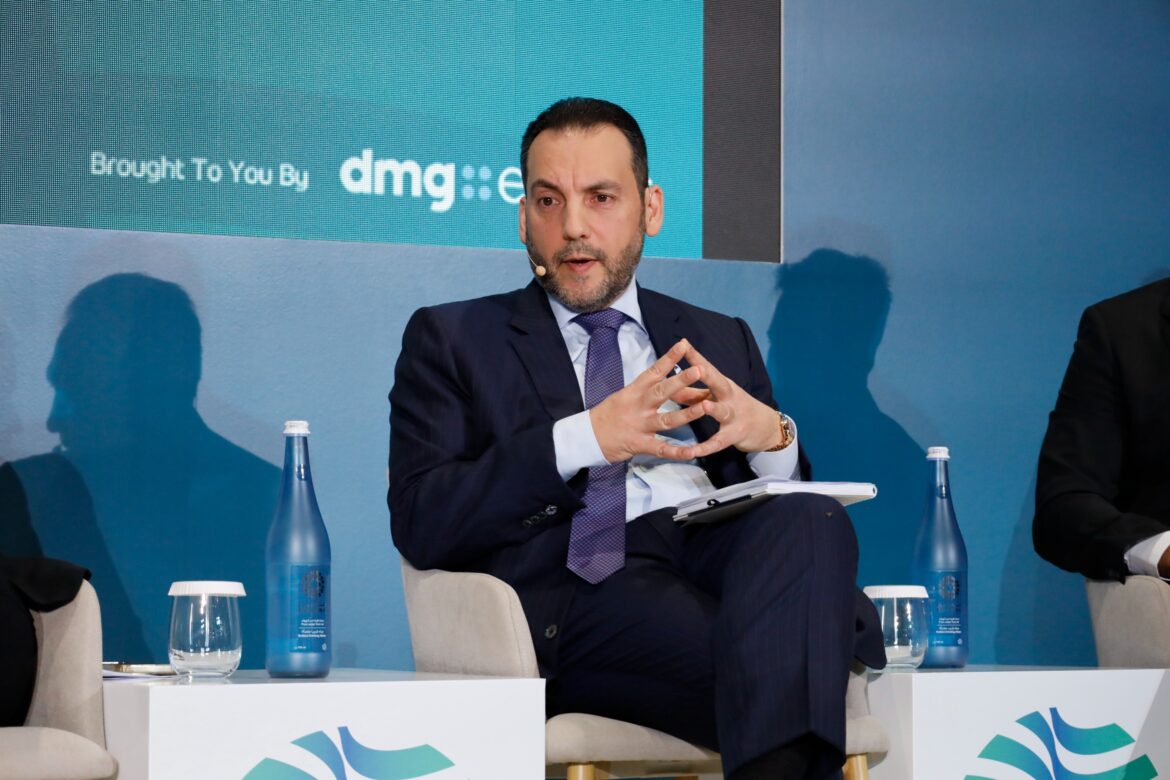As the climate crisis heats up, energy demand is also on the rise. Meeting this energy demand sustainably is crucial for securing an equitable, just and livable future.
ESG Mena’s Sal Jafar spoke to Ilias Abdo, CEO of Hydropower, about the challenges across the food-water-energy nexus and how the region finances a green transition.
This interview has been edited for length and clarity.
When looking at the food-water-energy nexus, what are the biggest transition challenges you’re seeing in the UAE?
We’re talking about the demand for energy increasing by at least double or tripling by 2050.
The demand and pressure on our existing infrastructure will be immense.
To meet current demand and maintain what we already have, you have to build twice what we’ve built in the last 100 years.
How are you going to do this? How is renewable energy going to contribute to this? These are a few of the challenges. Then you add food security and agriculture into that.
Indeed, there are specialised needs spread across different geographies, including the added challenge of difficult terrain.
These are all challenges. Not only this, but if energy is needed in these terrains, you need smaller solar plants to accommodate the energy requirements of these developments, which are going to be scattered.
So, we’re talking about, instead of having huge transmission networks, smaller distribution networks that would feed into this.
I think the energy transition has a lot of challenges in itself, but I see the demand itself and the need for increased agriculture for food security as two major challenges. Of course, finance is a third one which is going to be a big problem.
In remote areas, what are your thoughts about the potential of hybrid power?
The hybrid model has been used before, and it works. But, it’s a matter of meeting increased demand. If we are going to double or triple in the next 25 years, how do you meet this demand?
We go back to the same challenge again; I don’t think hybrid is the solution to that.
Let’s talk finance. We saw the AED 1 trillion pledge from UAE banks at COP28. That is more at the macro level. What about at the micro level, and what is the path to promoting more inclusivity?
The legislation needs to be pushed in such a way that it actually encourages the banking and finance sectors to invest in smaller projects.
Mega projects with huge ROIs have become easy for them, they understand that.
To do the smaller, micro projects, these are the challenges that we have ahead.
The models do not give the right numbers at the end, so I think some work needs to be done on that front.
What about the potential introduction of a green credit bureau?
This would be great as it would entice people to start investing in improvement: The greener you are, the better rating you would get, and perhaps you would have access to tax breaks and funds that other companies would not gain access to.
These are government drives, and with the UAE wanting to champion sustainability, is something that can be looked at or implemented.
What progress is being made with regard to realising these preferential rates or advantages for greener companies?
There’s a lot of talk about it. In the pipeline, there is a lot of work that’s going on, that’s coming, but there is no product yet as such from the banks.
Turning our attention to water: Water reuse is increasingly a topic of conversation in terms of investment and how best to make use of it. As the technologies are evolving, tell us about what you’re seeing across the space,
It’s a huge subject. The problem today is that ROI models are not so clear. We’ve looked at it ourselves, and we just think the economics are not there at the moment.
What are the barriers?
The barriers are the technology. When you want to reuse water, what do you want to reuse it for? If it’s agriculture—the major need—you would need to remove a lot of heavy metals and impurities, in order to ensure it doesn’t enter the food chain. It is an expensive process to undertake to achieve that—it makes the economics unviable.
Do you think there will be a breakthrough?
There is potential. How close we are to that, I’m not so sure. But alternatives need to be found, in order for reuse projects to become viable.
More broadly, how do you see collaboration progressing with regard to local players, international players, and investors?
We would like to see more technology providers. We would want to work with multinationals that have proven or upcoming tech that they would like to implement in networks. We would encourage these companies to talk to us.
Finally, with regard to AI, some experts say its environmental impact is not being given enough consideration, others say it’s a great opportunity to reduce emissions. In your work, what are the applications?
I think AI can offer improved efficiency, the tweaking of the systems that are going to be implemented. These are the areas where AI can help a lot—we are already seeing that. As we advance, this will play a bigger role in achieving this.
In terms of providers, how are you seeing the offerings develop in the local market?
A lot of the multinationals are doing the work, but we would like to see more products on board.
Thank you for your time, Ilias.
Hydropower is an ESG Mena Partner.




